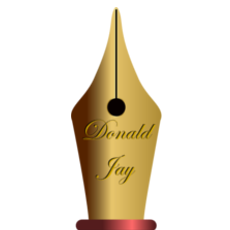
My discussion question this week is, how do you, as a reader, react when you encounter purple prose?
What is purple prose? You need to look no further than Wikipedia to find both a definition AND an example simultaneously.
“In literary criticism, purple prose is overly ornate prose text that may disrupt a narrative flow by drawing undesirable attention to its own extravagant style of writing, thereby diminishing the appreciation of the prose overall. Purple prose is characterized by the excessive use of adjectives, adverbs, and metaphors.”
Wikipedia
Woah! Okay, in non-purple prose,
“Purple prose is a noun phrase used to describe prose that is showy, elaborate, or overemotional. The term is used particularly when the writing gets in the way of the reader’s experience.”
grammarist.com
Or, we could consult Stephen King, the absolute “king” when it comes to hard and fast rules in writing.
“Any word you have to hunt for in a thesaurus is the wrong word. There are no exceptions to this rule.”
Stephen King
I generally balk at “absolute” rules.” Often, I will refer to a thesaurus to find a different word, not necessarily one that is more complicated or flowery. But, I take comfort in W. Somerset Maugham’s quote,
“There are three rules for writing a novel. Unfortunately, no one knows what they are.”
W. Somerset Maugham (1874 – 1965, Author — Of Human Bondage)
All of this is to say that at some time, as a reader, you have probably come across a word, phrase, or maybe an entire paragraph in a novel that took you out of the trance, so to speak, and brought you back to reality, either because the description provided was so over the top, or a word used was unfamiliar or seemed to be misused.
So, tell me, what happens to you when you experience purple prose or have to use the “look up” function in your Kindle to understand what’s really going on?
Inquiring writers want to know.



Thanks to the “I’m not a robot“ thing, I just lost a fairly extensive comment. I’ll see if I can remember most of it.
I have a fairly extensive vocabulary, plus I speak Spanish, and have dabbled in several other other languages. Therefore, I can usually either understand, in context, or extrapolate the meaning of words that I haven’t previously encountered. However, in those instances when I do run across a word I don’t know, I use Kindle look up feature, or Google/Siri. That is, accepting those cases where it becomes obvious the writer is being intentionally extravagant with $2 words and creating purple prose merely for the sake of being grandiose, or being viewed as highly educated, or something. in those cases, I begin to skip words, sentences, or paragraphs in an effort to get to a point where the actual story resumes, and I’m not just bombarded with big words.
Storytelling is about *telling the story*, not the writer’s doctoral thesis. In my opinion.
Sorry about the “I’m not a robot” thing, and thanks for your answer. Well put.
It’s so easy to look up a word while reading on my kindle that I don’t mind at all. I enjoy seeing if the real meaning is close to what I inferred from context. When reading a hard copy book, I’ll whip out the dictionary app on my phone, still much easier than using a hard copy dictionary, like in the old days. I find having to look up words and encountering overly flowery language most common when reading classic literature. My most recent experience was in reading Walden by Henry David Thoreau. Although annoyed by interruptions, I don’t skip ahead. I have to read every word. I’m a compulsive reader and can’t quit a book once I start it.
Thanks, Lori. I love your insights, especially the references to the good ole’ days. I used to not quit on a book once I started it, but now I find my time is so precious, I can’t convince myself to continue reading a book I am not enjoying.
I just read the book The Luminaries which is a period piece set in New Zealand in 1866. The prose in that book was almost all purple lol. It was appropriate for the piece…I just wish I’d been able to follow it better. Usually if there’s a word I don’t know I can understand from context clues and these days I don’t worry too much if I miss a subtle subplot or something because I don’t take the time to fully understand what’s happening, unless it’s certain authors of course, but then this is never an issue with the best ones.
Thanks, Dianna. Sorry for the delayed response.